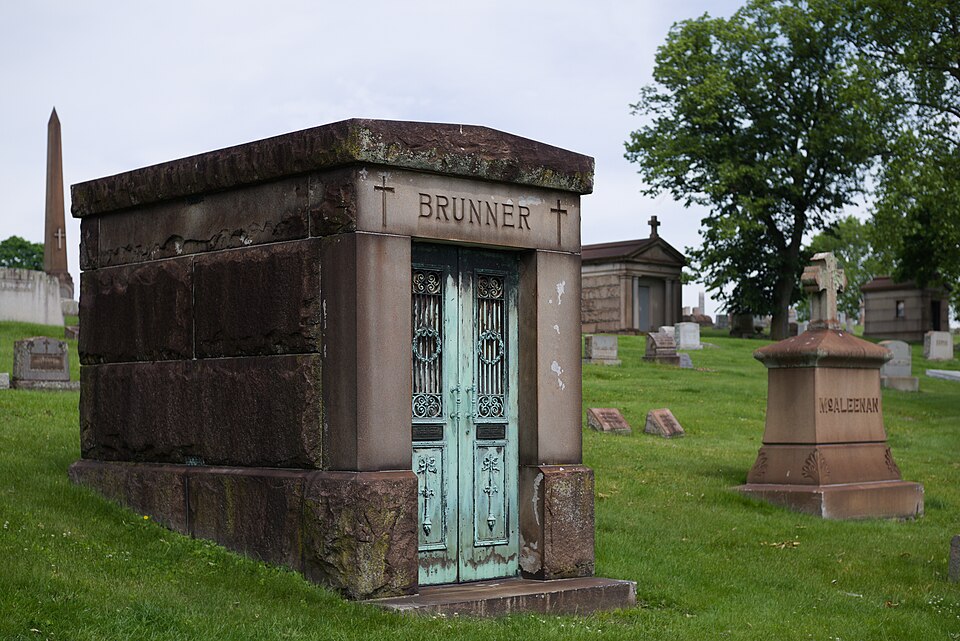
A little mausoleum with a fine pair of bronze doors.
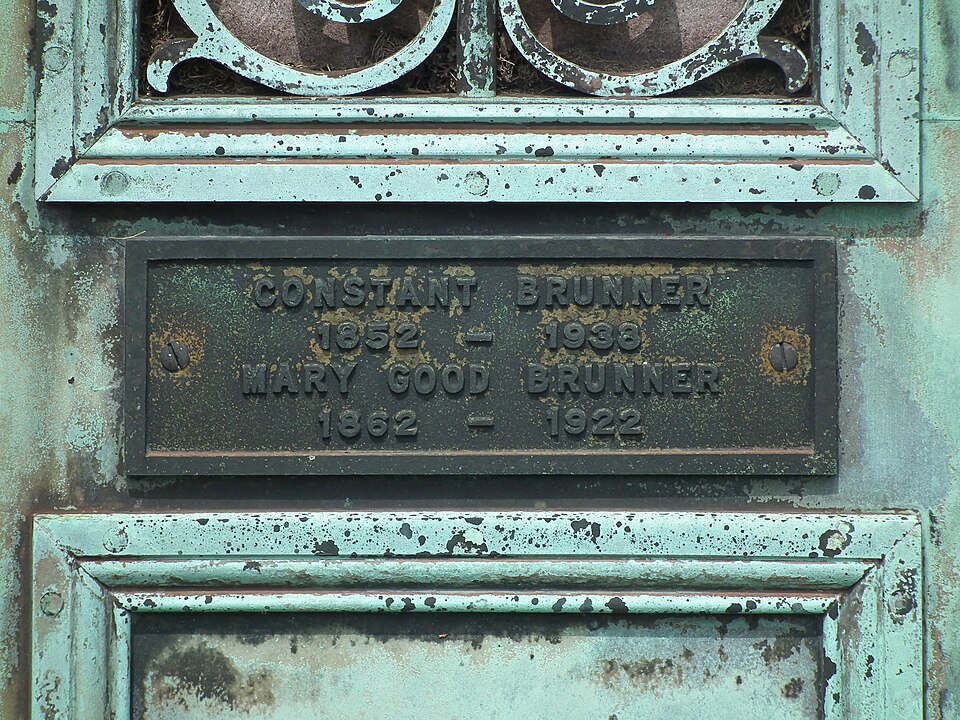
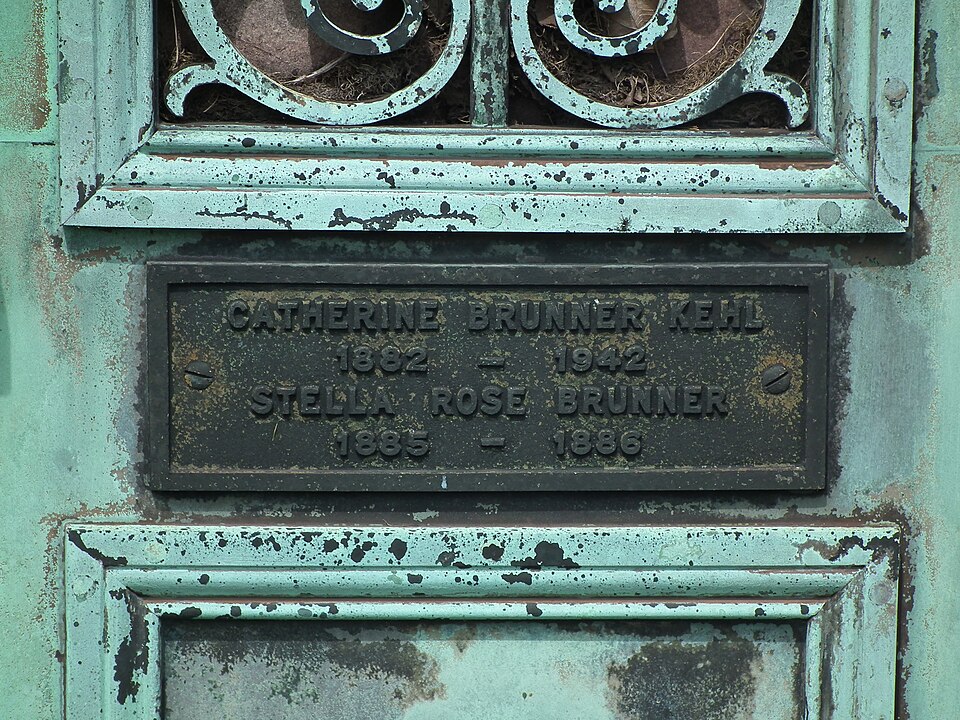
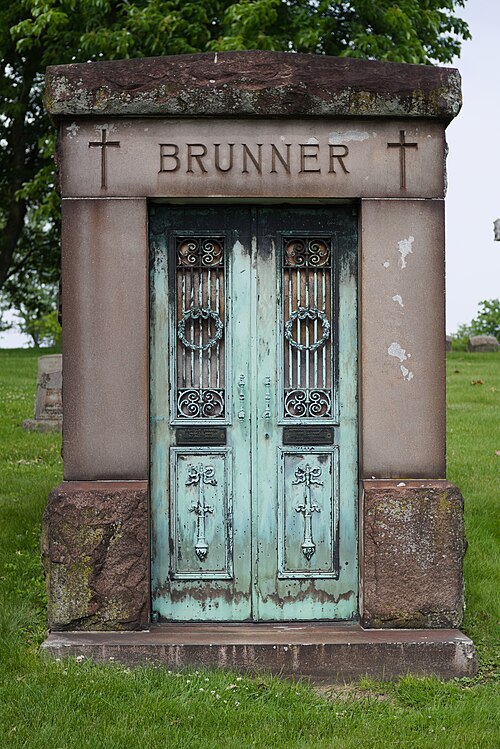
Comments
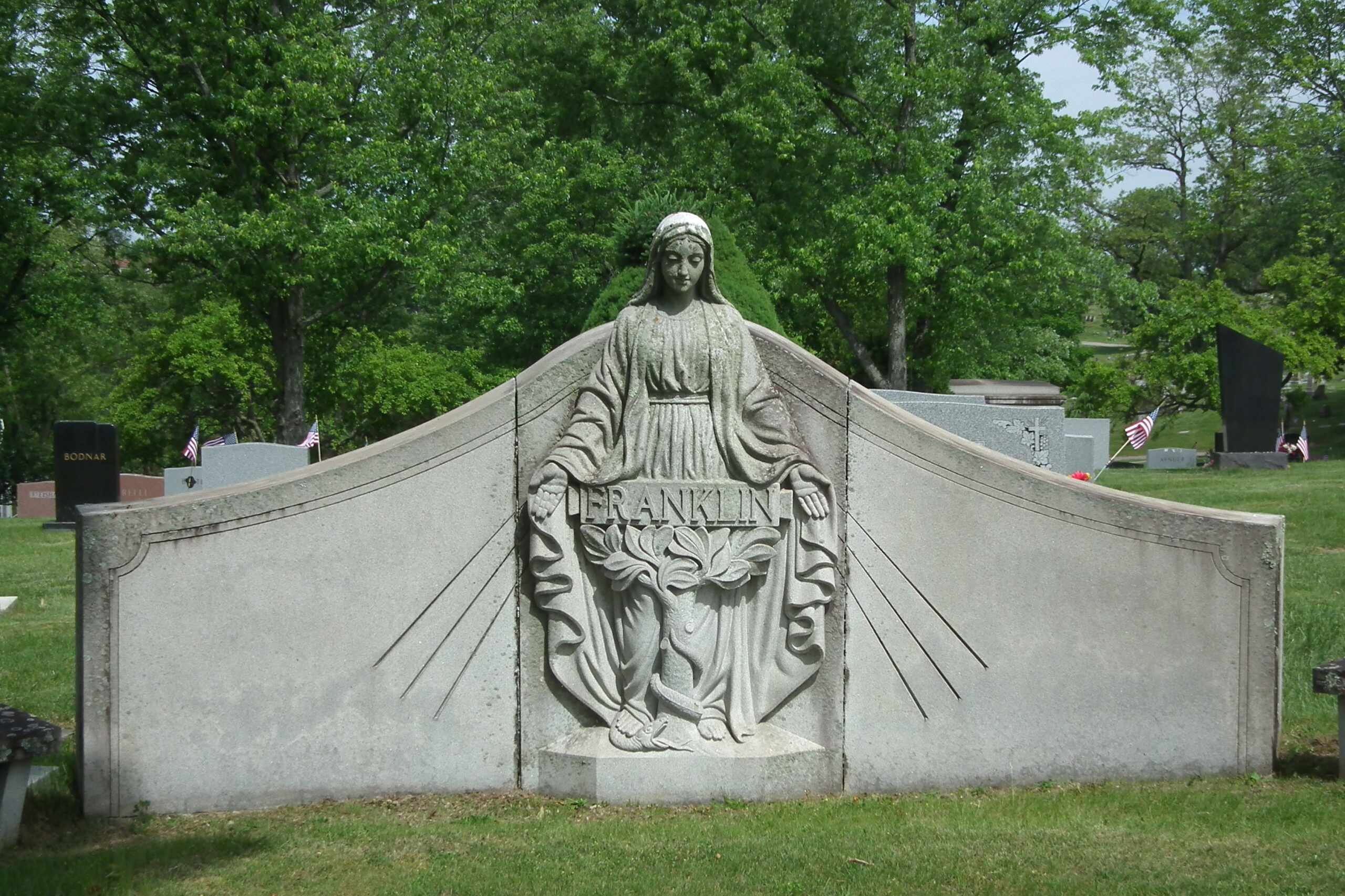
In the middle twentieth century, a certain style of monument that combined traditional devotional imagery with Art Deco streamlining became very popular in Catholic cemeteries. Above and below, St. Mary prays for the Franklin family.
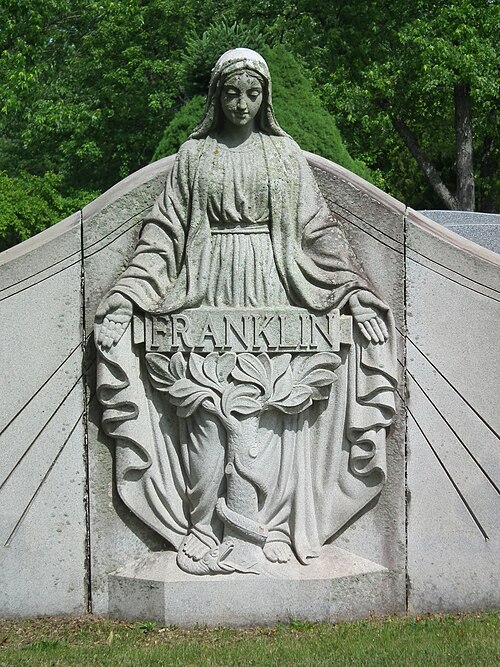
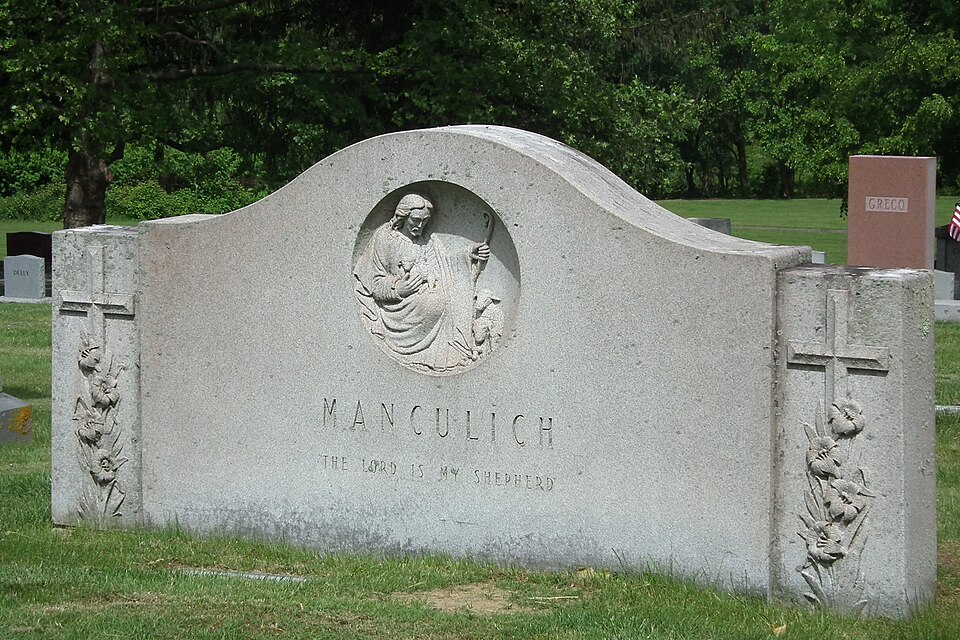
A Good Shepherd relief adorns the Manculich monument, with the head of Christ coming out of the relief to be rendered in three dimensions.
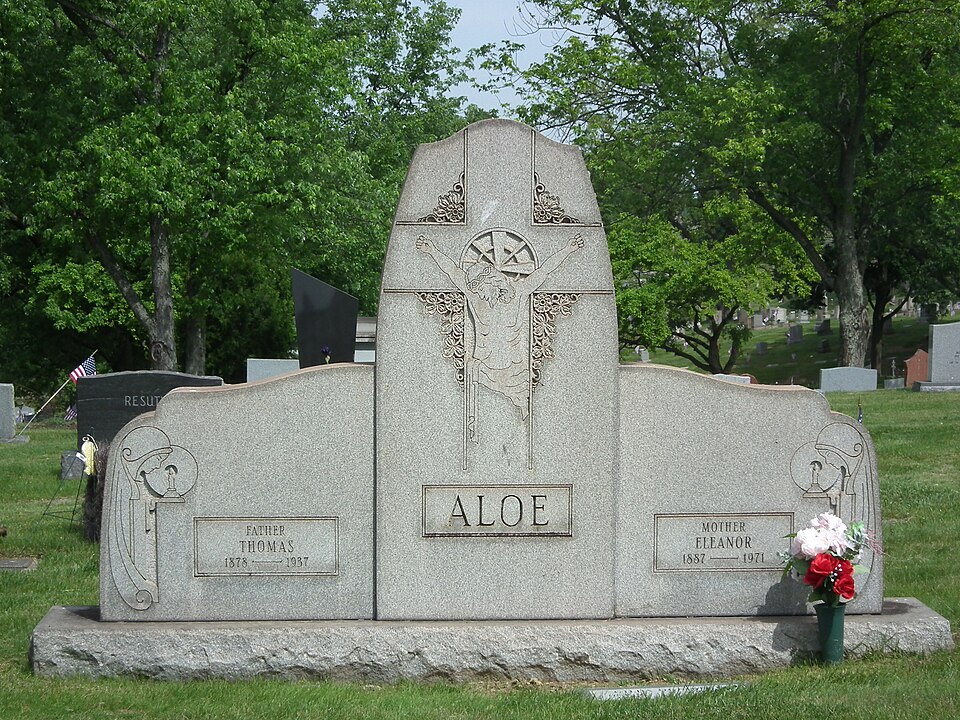
In many ways Art Deco is similar to Gothic styles in art, and here we have an incised Crucifixion that transports the medieval spirit to the twentieth century. Without diminishing the agony of Christ, the cross is beautified and adorned with passionflowers, so that the very moment of death is transformed by the beauty of redemption. The praying figures at the sides are models of effective simplicity, although old Pa Pitt can’t help worrying that their foreheads are too close to the candle flames.
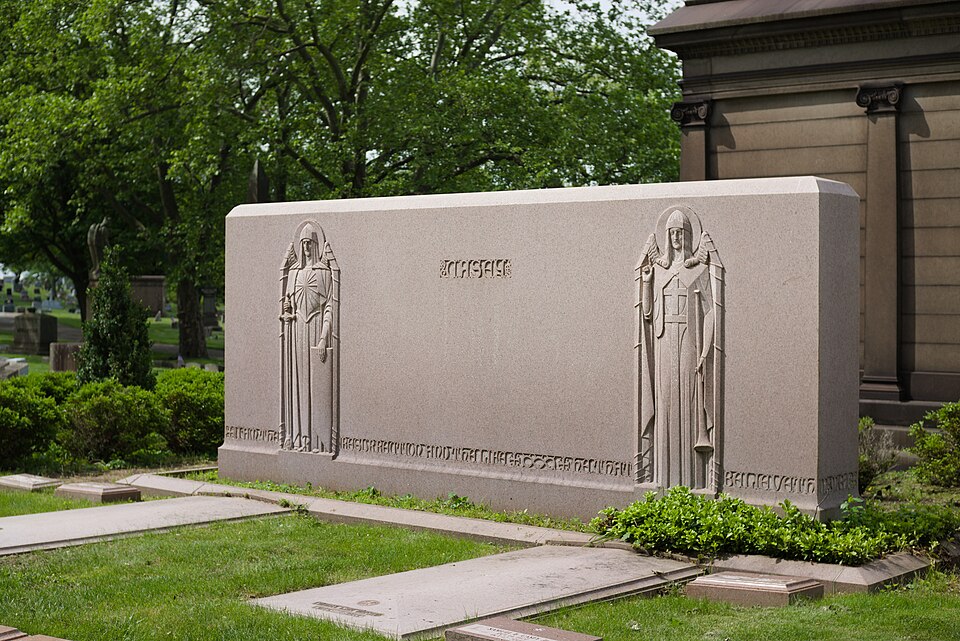
The Casey plot is guarded by two Deco archangels dressed as medieval knights. The inscription—“I am the resurrection and the life,” etc.—runs all the way around the bottom of the monument.
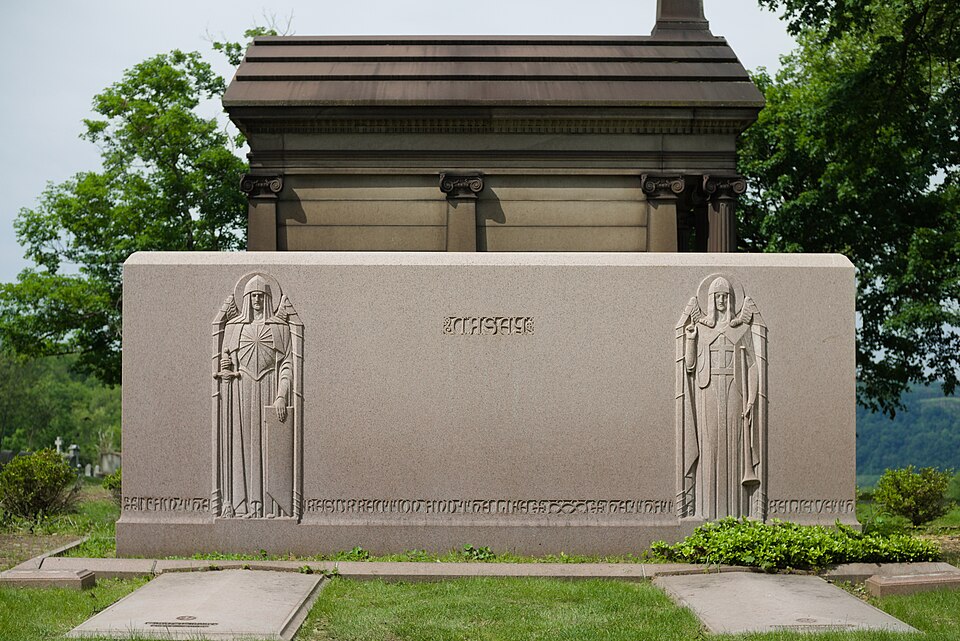
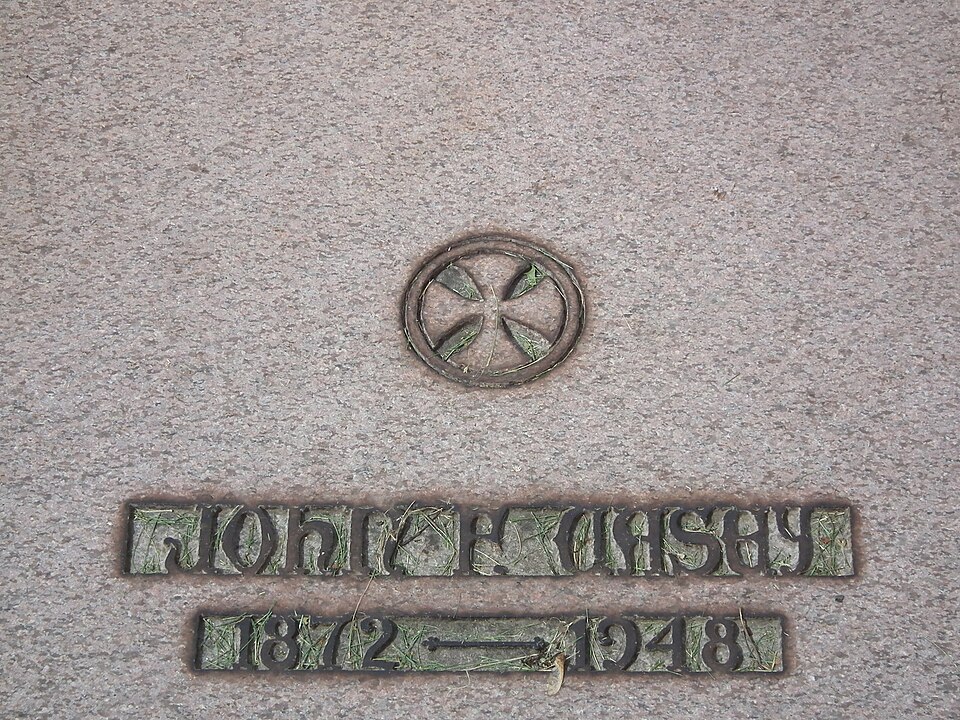
Ledgers for John F. and Mary Lee Casey bear bronze inscriptions in lettering that matches the inscription on the main monument.
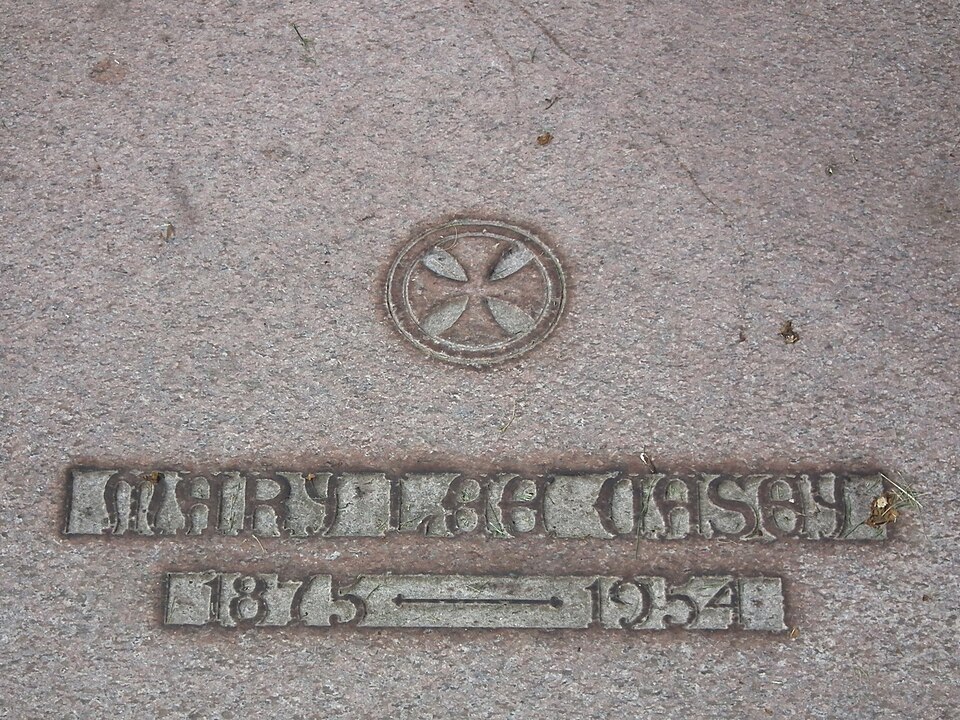
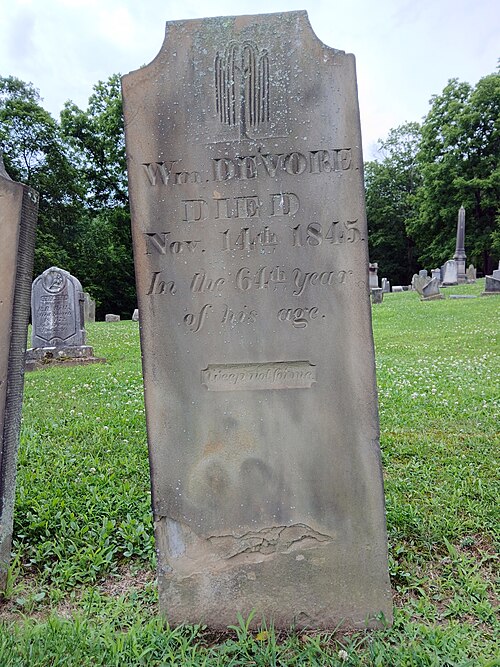
A work of our Master of the Bold Modern Capitals, decorated with a weeping willow and the epitaph “Weep not for me.”
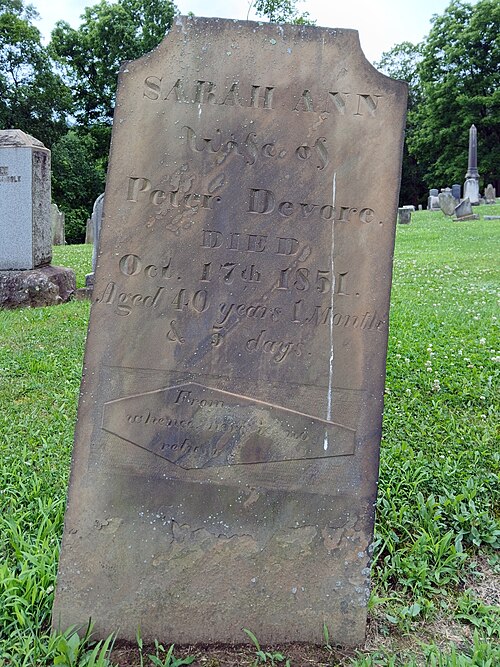
Sarah Ann Devore died at the age of only 40. Her tombstone is decorated with a cheery little coffin bearing the words, “From whence there is no return.”
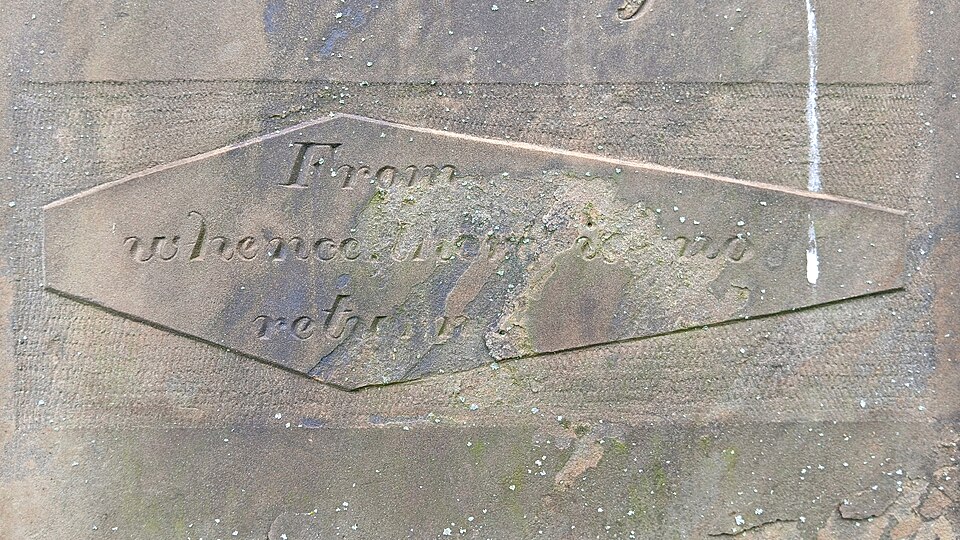
This is a new artisan for our collection, whom we shall name the Master of the Bold Modern Capitals for his distinctive adoption of fat lettering imitated from the “modern” types of the early nineteenth century, especially obvious in the very bold letters of the word “DIED.”